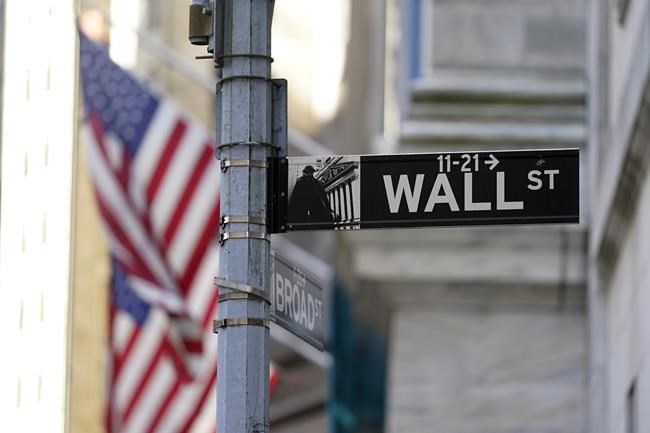NEW YORK — Stocks ended an unsteady day with mixed results as gains for energy companies were offset by losses in technology and other sectors. Trading was uneven Tuesday as investors closely watch developments in China and economic data amid worries about stubbornly hot inflation. The S&P 500 slipped 0.2% and the tech-heavy Nasdaq lost 0.6%. The Dow Jones Industrial Average ended just barely in the green and small-company stocks rose. Treasury yields rose. The yield on the 10-year Treasury note, which helps set mortgage rates, rose to 3.76%. Crude oil prices rose.
THIS IS A BREAKING NEWS UPDATE. AP’s earlier story follows below.
Stocks edged lower on Wall Street in unsteady trading Tuesday afternoon as investors closely watch developments in China and economic data amid worries about stubbornly hot inflation.
The S&P 500 slipped 0.2% as of 3:13 p.m. Eastern, on pace for its third straight drop. The Dow Jones Industrial Average fell 23 points, or 0.1%, to 33,824, and the Nasdaq slid 0.6%.
Small-company stocks were mostly higher. The Russell 2000 rose 0.3%.
Technology stocks were the biggest drag on the broader market. Apple fell 2.4%.
Financial and industrial stocks also rose. American Express added 2% and United Parcel Service rose 2.5%.
Energy stocks rose as U.S. crude oil prices climbed 1.2%. Hess rose 2%.
Bond yields gained ground. The yield on the 10-year Treasury, which influences mortgage rates, rose to 3.75% from 3.68% late Monday.
Markets in Europe were mixed and markets in Asia rose broadly.
Hong Kong's benchmark index jumped 5.2% as seemingly calmed down amid a heightened police presence in major cities and the government eases some of its lockdown restrictions.
China's “zero-COVID” policy includes strict lockdown procedures that have crimped the nation's economy and threaten global supply chains. That has added to broader concerns globally about stubbornly hot inflation and the potential for recessions to hit economies worldwide.
Wall Street's big focus remains the . The central bank has been aggressively raising interest rates to make borrowing more difficult and tame high prices. The Fed's benchmark rate currently stands at 3.75% to 4%, up from close to zero in March.
Fed Chair Jerome Powell will speak at the Brookings Institution about the outlook for the U.S. economy and the labor market on Wednesday. Investors have been hoping that the Fed could ease up on its rate increases and are closely watching the latest data on inflation, consumer spending and the employment market.
The Conference Board reported on Tuesday that from October, but remains relatively strong. Consumer spending has been solid area of the economy, along with employment.
The U.S. government will be releasing several reports about the labor market this week. A report about job openings and labor turnover for October will be released Wednesday, followed by a weekly unemployment claims report Thursday. The closely watched monthly report on the job market will be released on Friday.
___
Yuri Kageyama contributed to this report from Tokyo.
Damian J. Troise And Alex Veiga, The Associated Press



